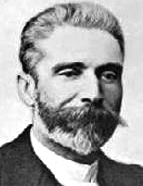

The divide between Arian North and Semite South is a key element in both Teles’ thinking and his interpretation of the history of Portugal. This belief distinguished him from other contemporary authors – Téofilo Braga, for example – who also attached value to the ethnic factor. Teles was of the opinion that the original cause of the country’s decadence – the moment at which Portugal broke with its medieval roots – arose out of the 1383 revolution, which signified the triumph of the mercantilist, cosmopolitan Lisbon bourgeoisie. In his view the preponderance of this social group and the adoption of a new economic strategy, which took the shape of a policy based on trade and transport to the detriment of agriculture, was to mean the end of the thus far predominant sober, honest way of life, which was replaced by dissolute customs and laziness (Idem, p. 346). This primordial mistake, as Teles called it, was then added to by other factors: monarchical despotism, religious fanaticism, and the obsession with forms of greatness. He believed that these were the causes of the decadence of the Portuguese people – reflected in the bastardisation of their character and the acquisition of numerous vices – which had in turn led to the lack of a common objective with the capacity “to impose direction and convergences on uncoordinated individual energies” (Do Ultimatum ao 31 de Janeiro [From the Ultimatum to the 31st of January], 1905, p. 163). To those who exulted in a glorious past of discoveries of islands, continents and new peoples, Teles replied: “Let us all stop fooling ourselves, however much the truth may rumple our pride: what we gave – or more exactly, what we sold – to civilised Europe was brazil-wood and pepper” (Estudos históricos..., p. 58).
Teles shared the sentiment of an end-of-century decadence to which a significant proportion of his contemporaries adhered. He believed the Portuguese possessed a weak, cautious, timid and slow temperament – so different from strong races like the German and British – and showed themselves to be people without speculative or abstractive capabilities, lacking in creative capacities or the talent to synthesise ideas. He thought that there were no daring individuals, or a single illustrious name in the sciences; and that, with the exception of the first kings and the Marquis of Pombal, rulers were a bunch of incompetents who couldn’t put an end to the disorder in the country’s public finances. However, despite this clear despondency, Teles did not believe in a Finis Patriae. The way in which he repeatedly evokes the past in his writings possesses a civic/political dimension that it is important to note. The fact that he listed the causes of decadence did not mean he was resigned to it, but rather reflected his intention to offer a response to the questions public opinion was asking as it looked for solutions to the crisis.
